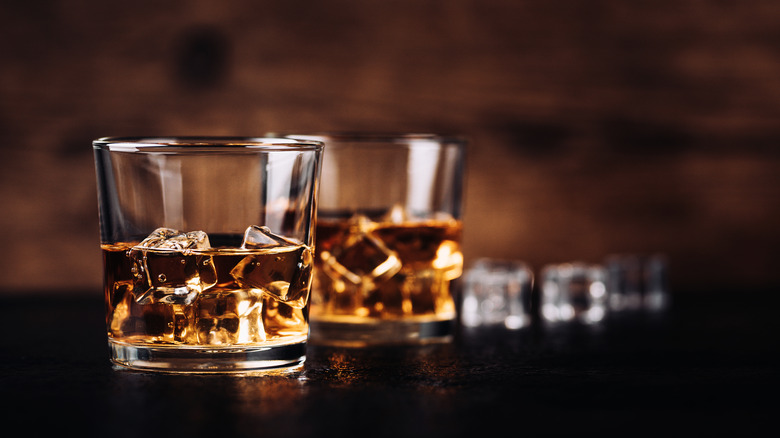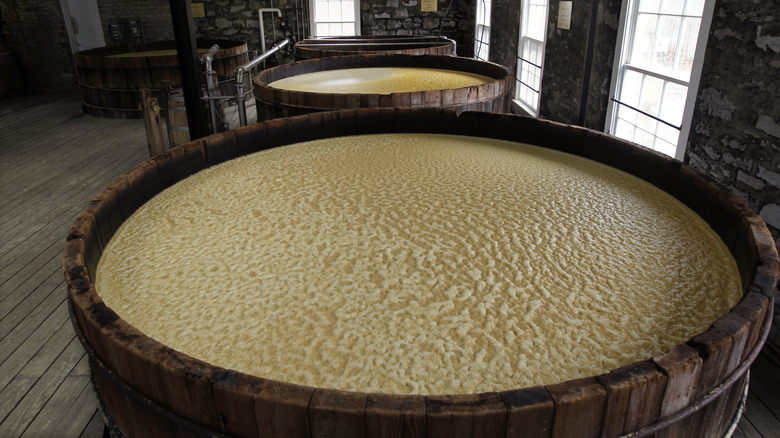How Kentucky's Mineral Water Helps Make Bourbon Unique
There are a few key rules when it comes to bourbon. It has to be made from at least 51% corn mash, stored in new charred oak barrels, and it can't have any additives for color or flavor other than water, according to the American Bourbon Association. On May 4, 1964, Congress adopted Senate Concurrent Resolution 19, which designated bourbon a "distinctive product of the United States," which means it also has to be made in the United States, making it effectively the American national spirit.
And although there's no rule that bourbon has to be made in Kentucky, where it first originated, the vast majority of the world's supply of bourbon happens to come from the Bluegrass State, to the tune of a whopping 95% in 2020, according to the Kentucky Distillers' Association. Part of the reason is that corn is one of the top crops grown in Kentucky (via the USDA). Another reason has to do with the unique mineral water that's found in Kentucky.
How limestone water affects bourbon production
According to the Kentucky Geological Survey, more than 50% of all the surface rocks in the state are made up of limestone. As Know How Studios explains, that limestone acts as a natural filter for the water that passes through it, and when it does, it "naturally filters out iron and adds nutrients like magnesium and calcium, making it a sweet-tasting mineral water." The impact of that sweet tasting limestone water goes beyond just its flavor profile.
As Buffalo Trace's master distiller Harlen Wheatley explained to The Daily Beast, the added magnesium and calcium are nutrients "that the yeast needs to thrive," which means that having that extra magnesium and calcium helps the fermentation process for bourbon. In addition, limestone filters out iron, which would otherwise discolor the bourbon and turn it an unappealing black color, notes The Whiskey Wash. And as Ward III further explains, the limestone water also helps bourbon "age more slowly and improve its flavor." So when Kentucky distillers credit the state's limestone water for the unique taste and quality of their bourbon, there's a real good reason for it — it's the truth.

